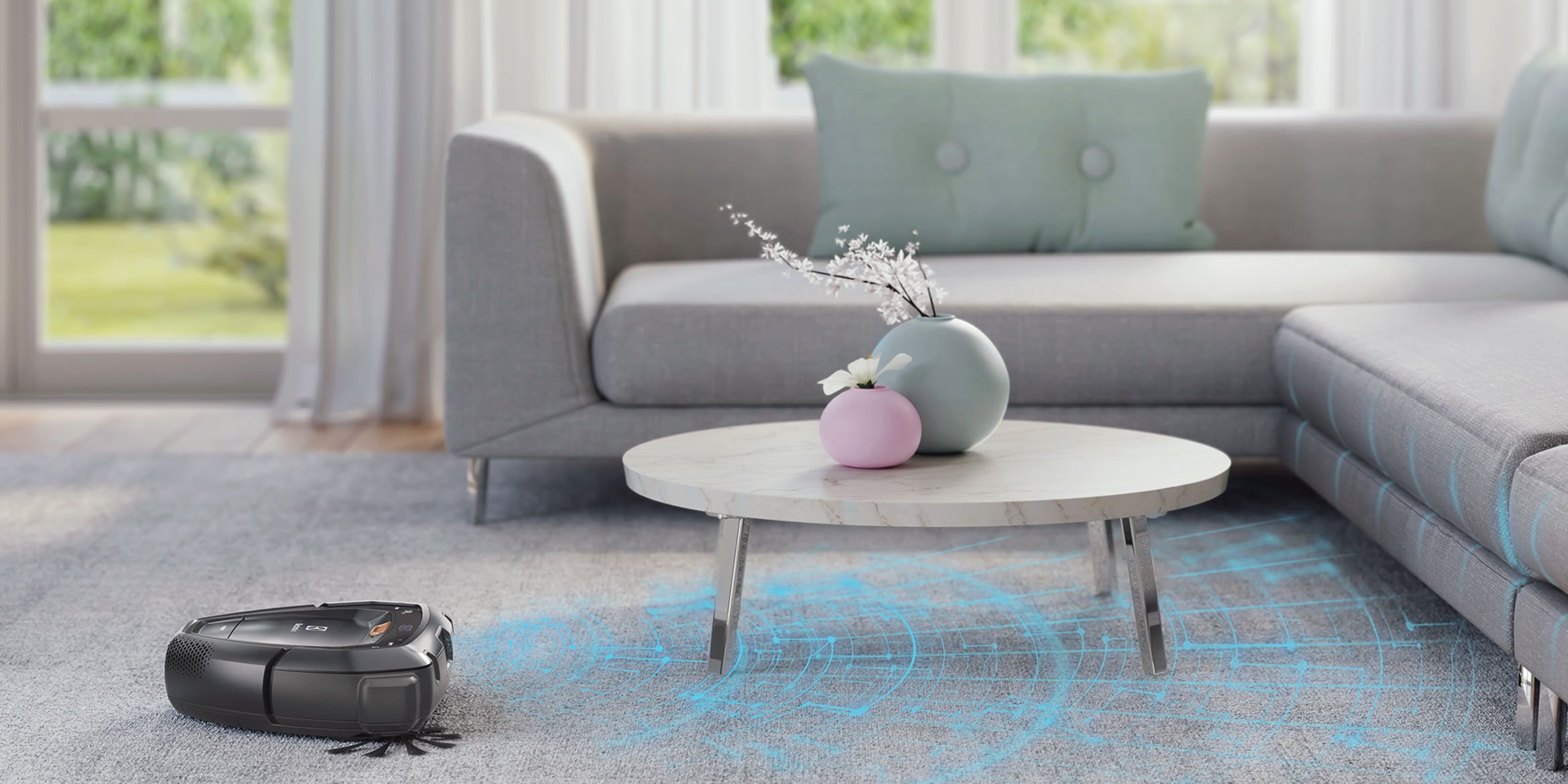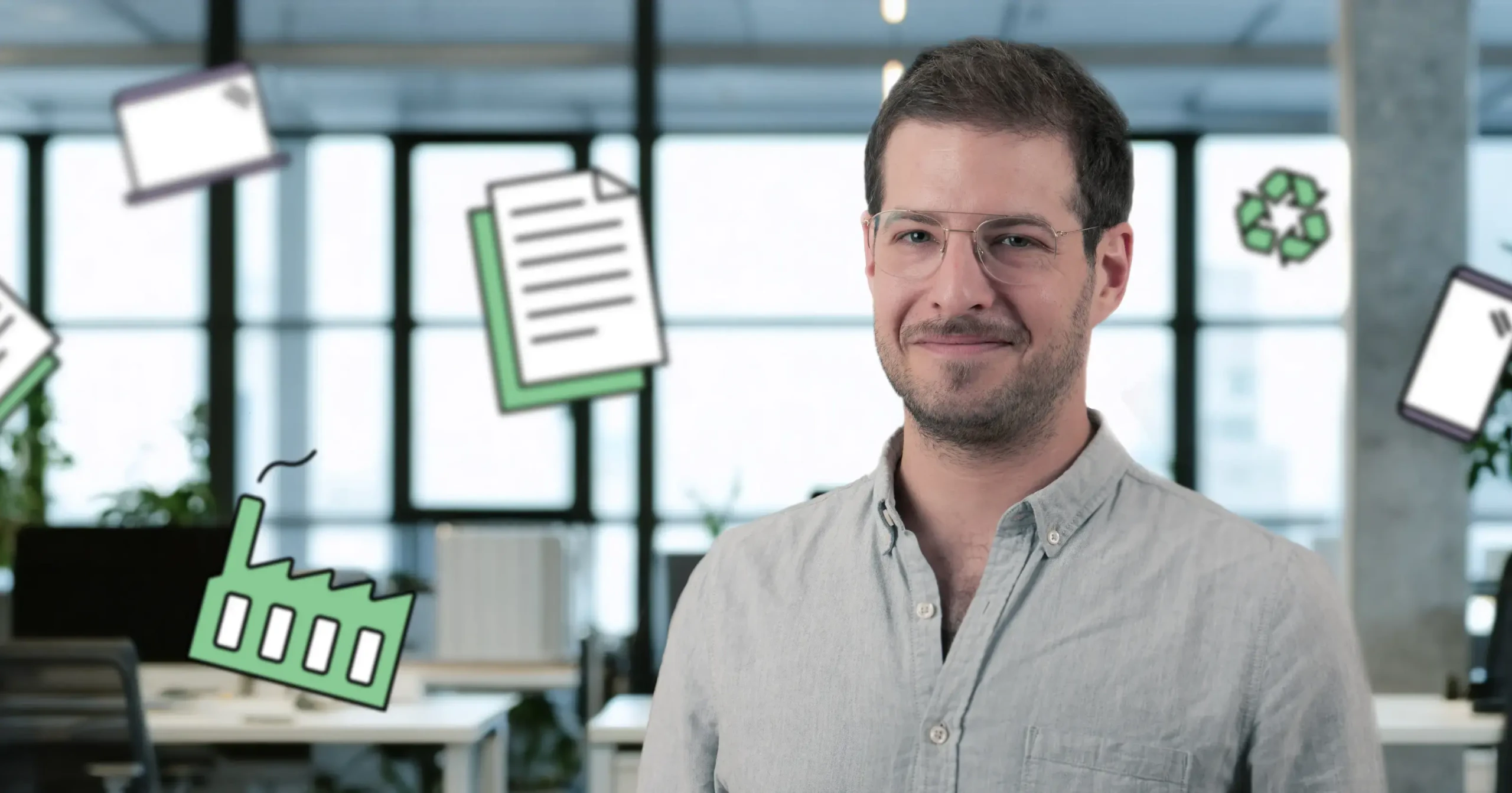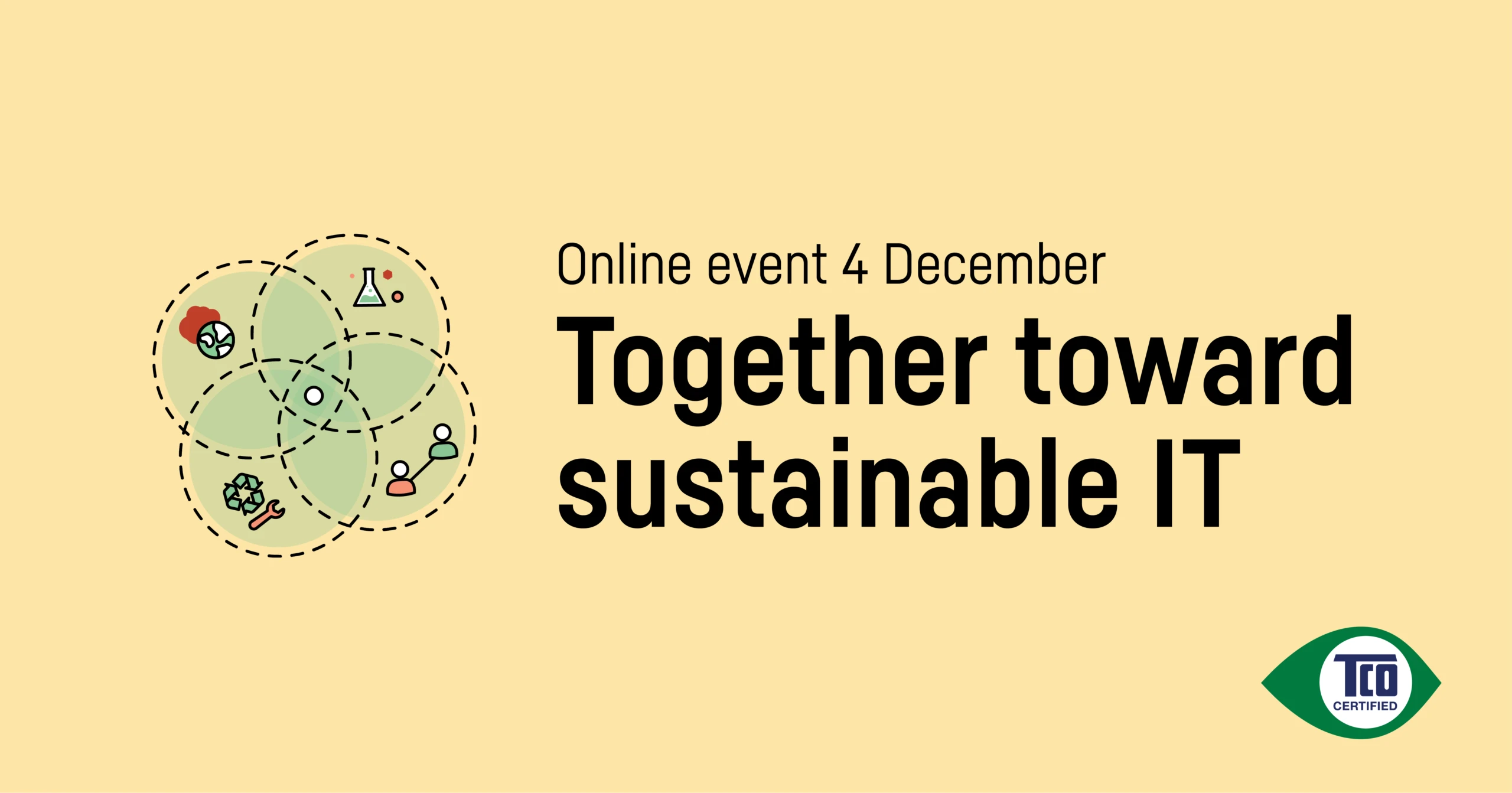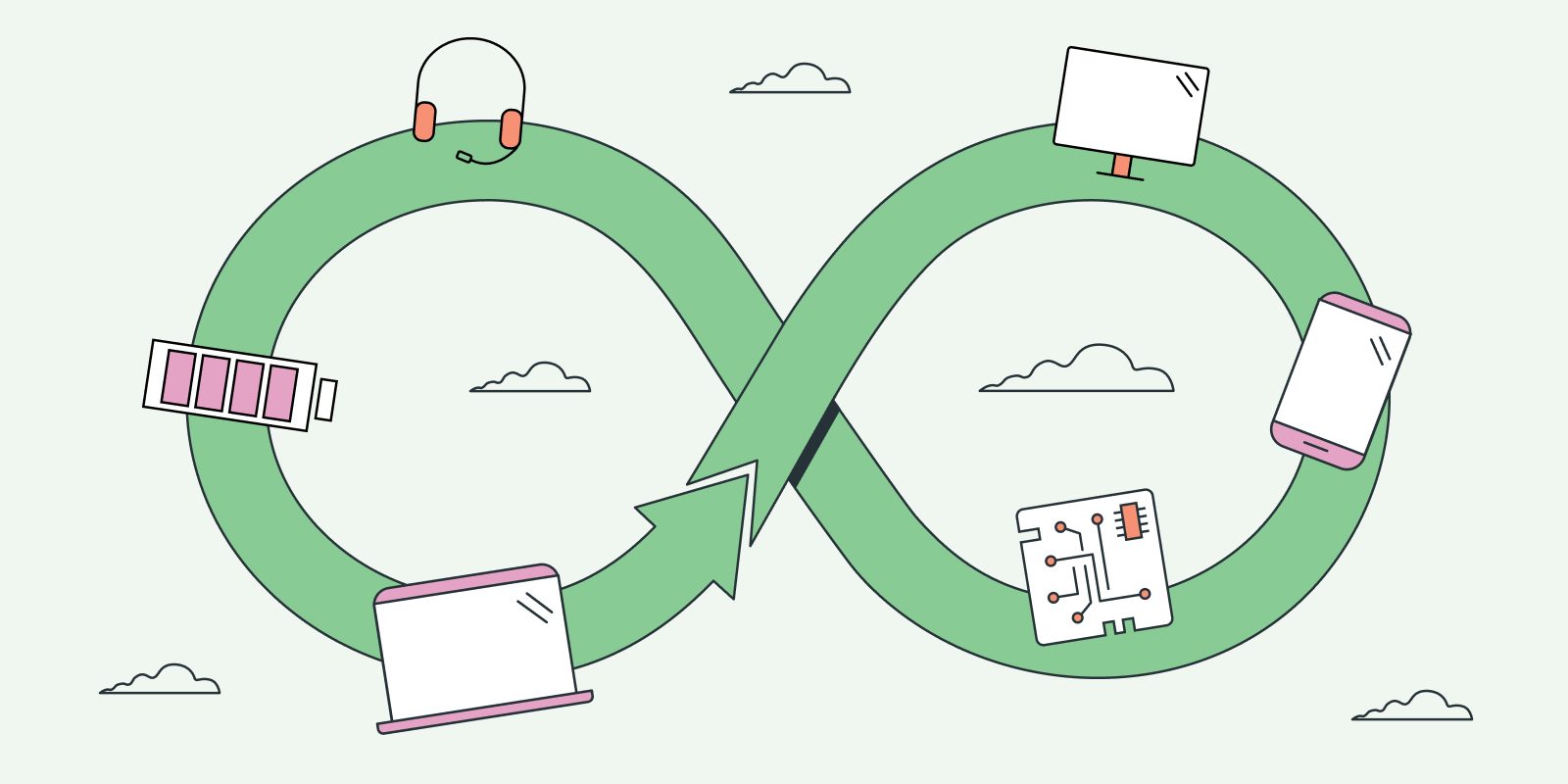Present in more than 150 markets, the Electrolux Group is a major player in the household appliance industry with a number of well-known brands. Sustainability is an important priority for the company, and one ambition is to make responsible choices when IT products are involved.
As a producer of refrigeration appliances, Electrolux realized that environmental issues were already a hot topic in the late 1980s, when legislation banned the use of freon in an effort to protect the planet’s ozone layer. The scope of the company’s sustainability work has since grown, and in the 1990s, it started issuing sustainability reports. In 2014, a new sustainability framework was designed.
“We analyzed all our business segments to map out which areas to prioritize and where we could have the largest impact. The result was a framework, with nine promises for our sustainability work, called ‘For the Better,’” says Helena Babelon, Head of IT Sustainability & Continuous Improvement at Electrolux Group.
Strategic IT purchases drive sustainable development
Helena Babelon saw the opportunity to include IT in the sustainability agenda. She had previously worked with the digitalization of company sustainability reports, creating tools that enable data collection from factories, warehouses and logistics. She identified that responsible IT purchases would be an efficient way of lowering environmental impact and driving progress toward fair working conditions in the factories.
The first step was to identify IT areas with the best potential for improvement. Then her team connected with the procurement team to set the purchasing criteria.
“Our organization has multiple considerations to make when purchasing IT products. By cooperating across functions, we can include the sustainability aspects in the decision-making process and get it right from the beginning,” Helena Babelon says.
Succeeding with sustainable procurement of IT products is a challenge, according to Helena Babelon: “global regulations and guidelines are lacking, and there is no clear framework that we can follow.”
What sustainability challenges does Electrolux prioritize in the procurement of IT products?
“There are a number of things, covering both social and environmental sustainability,” explains Helena Babelon. “We want to use fewer resources, especially when it comes to electricity. When we lease our IT equipment, we demand that the supplier reuses the IT products whenever possible. Social requirements are important; they have been included in the contracts for IT purchases earlier, too. We also make sure that we have the right to acquire product data that allows us to follow up on internal goals.”
To identify the right priorities in procurement, Helena Babelon and her colleagues used Electrolux’s corporate sustainability framework to define the requirements for sustainable IT, which are now included in the IT Master Services Agreement. For additional insights and inspiration, they connected with counterparts in other organizations. All along, top management supported their efforts, which was an essential success factor, according to Helena Babelon.
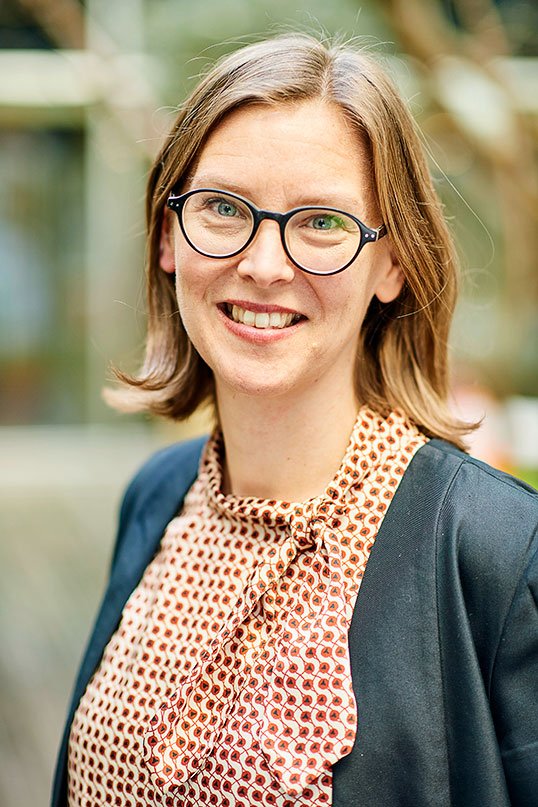
Helena Babelon, Head of IT Sustainability & Continuous Improvement at Electrolux Group
Although Electrolux as an organization has a lot of experience in formulating criteria for their own supply chains, the decision was made to use TCO Certified in the procurement of IT products such as desktop and notebook computers, all-in-one PCs, tablets and displays.
Why did you decide to use TCO Certified?
“TCO Certified is a comprehensive and global certification available for these IT products. Electrolux can rely on TCO Certified in the dialogue with vendors of IT equipment,” says Helena Babelon.
TCO Certified includes criteria that, for example, drive responsibility and transparency in the supply chain and help purchasing organizations contribute to the UN Sustainable Development Goals. The criteria also aim to reduce or eliminate the use of hazardous substances in IT products and replace them with safer alternatives, and extend the lifespan of IT products, enable reuse and recycling, which support the circular economy.
Each year, independent verifiers spend more than 150,000 hours assessing that products and factories meet the criteria in TCO Certified, following up that non-compliances are corrected.
“It’s a great advantage for us to use TCO Certified. It would be extremely difficult for us at Electrolux to carry out the work that TCO Development does. The certification includes independent verification, which is crucial for a credible result.”
Electrolux provides almost 30,000 employees with IT products each year and finds that the Group can drive the development in a sustainable direction by setting the right criteria. After carrying out the first procurement of computers according to the new criteria, Helena Babelon was happy to see that 100 percent of the purchased products were certified according to TCO Certified.
“TCO Certified makes the procurement process much more efficient and helps us set criteria in a straightforward way. We can ask: Is the product certified? If the answer is no, we can ask when the model will be certified.”
An opportunity to drive change
Electrolux has committed to reaching a number of sustainability goals by the year 2025, such as reducing its greenhouse gas emissions from operations by 80 percent and from products by 25 percent, compared with 2015. Helena Babelon is very engaged in sustainability issues and finds driving the development of more sustainable IT solutions satisfying also on a personal level.
“I often think about what I can do to contribute to a more sustainable world. I can do some things as a private individual, but if I can drive change in a large organization such as Electrolux, I can make a much bigger difference.”
Helena Babelon’s tips for successful sustainable IT procurement
- Make sure that you have support from top management. It is an essential success factor.
- Have dedicated people within the organization who work with sustainable procurement.
- Find ways to ensure the independent verification of compliance with your sustainability criteria. This is crucial for a credible result. Make sure it is included in the certification, if you don’t have the resources to do it yourself.
- Include the sustainability requirements for IT products at the start of the procurement process.
- Educate and raise internal awareness via various channels so that people understand and actively contribute to sustainability in their areas of ownership.
- Don’t give up! By setting criteria that are challenging but reachable and increasing ambitions gradually, you can help drive positive development.
Get started with sustainable procurement!
Do you want to know how TCO Certified can help you procure more sustainable IT products more easily and efficiently? Contact us at purchasing@tcodevelopment.com.
About Electrolux Group
- A global company, present in more than 150 markets.
- Products include refrigerators, dishwashers, washing machines, vacuum cleaners and air conditioners, for household and professional use.
- Brands include Electrolux, AEG, Anova, Frigidaire, Westinghouse, Zanussi and more.
- The company was founded in 1919.

